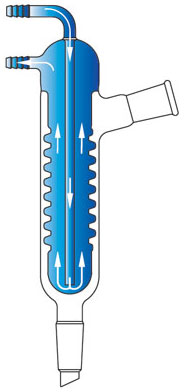| The Home page of ILPI's Safety Data Sheet (SDS) Resource, the leader in SDS information since 1995! | |
| The history and philosophy behind this resource. | |
| A curated collection of books and reference materials concerning Safety Data Sheets and closely related topics. | |
| Paste your plain text SDS into the SDS-Demystifier, and it will be converted into a hypertext-enriched document with links to detailed explanations of each key term. | |
| An extensive list of frequently asked questions about Safety Data Sheets including regulations, content, compliance, and more. | |
| A humorous take on Safety Data Sheet jargon. Fill in the blanks on our entry form to generate a personalized Unsafety Data Sheet to share with your coworkers. | |
| Since 1995, we've maintained this massive curated list of the best places to find Safety Data Sheets on the Internet. | |
| You are here! Way more than a glossary, this hypertext-enhanced resource covers hundreds of SDS-related terms and expert knowledge. Each entry includes both the SDS relevance and links to additional authoritative resources. | |
| Archived results of Safety Data Sheet related polls taken by some of our millions of site visitors | |
| The OSHA regulations behind SDS regulations, including the inspection guidelines and over 400 official interpretations letters under the Hazard Communication Standard | |
| Commercial suppliers of SDS authoring and management software as well as cloud compliance services. | |
| Commercial companies that will create SDS's for your specific needs as well as SDS translation companies. |

Safety signs, banners, and scoreboards? Get yours at Safety Emporium!
Definition
Anorexia is loss of appetite.
You may be familiar with the eating disorder, anorexia nervosa, in which the victim restricts dietary intake to starvation levels. A related syndrome called bulimia involves binge eating followed by purging.
Additional Info

Chill out with laboratory condensers from Safety Emporium.
Anorexia can be caused by certain chemicals (see below) but a fixation on food and body image as found with anorexia nervosa and bulimia (both are psychological conditions) is beyond the scope of this text. See Books as well as Further Reading below for general resources on these two disorders.
Books Available
NOTE: We may collect a share of sales or other compensation from the links in the following list:
- Treatment Manual for Anorexia Nervosa: A Family-Based Approach", Paperback, 289 pages, 2015. Estimated price $32.00. Info and/or order .
- "Biting the Hand That Starves You: Inspiring Resistance to Anorexia/Bulimia", Hardcover, 314 pages, 2004. Estimated price $45.00. Info and/or order.
- "100 Questions & Answers About Anorexia Nervosa", Paperback, 180 pages, 2009. Estimated price $15.34. Info and/or order.
- "Dying to Please: Anorexia, Treatment and Recovery, 2d ed", Paperback, 198 pages, 2009. Estimated price $35.00. Info and/or order.
SDS Relevance
Anorexia may be a symptom of acute or chronic exposure to certain chemicals, particularly those that affect the central nervous system. Examples include, but are not limited to, various pesticides, heavy metals and lithium compounds. If you have suffered an unexplained loss of appetite in conjunction with other unusual symptoms, you may want to more closely examine the Safety Data Sheets for the chemicals that are used in your workplace, paying particular attention to Section 11 (toxicological information).
Further Reading
- Anorexia Nervosa at eMedicineHealth.
- Anorexia at NIH's MedLinePlus.
- Anorexia Nervosa, a multipage resource at MayoClinic.com.
- Anorexia Nervosa at MedicineNet.com.
- Bulimia Nervosa at The National Eating Disorders Association (NEDA).
See also: acute toxicity, chronic toxicity, neurotoxin.